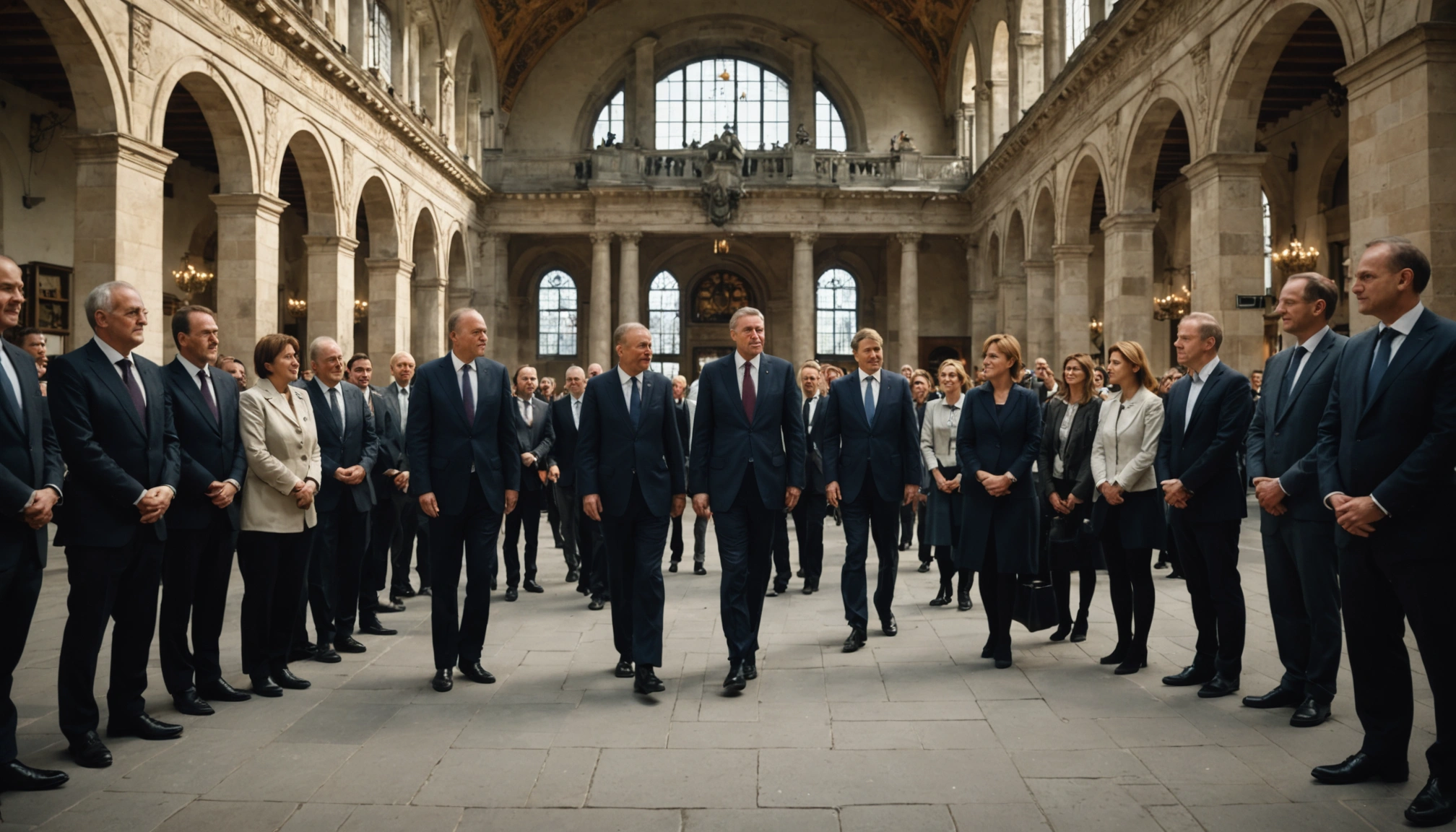Related Articles

Poland's Enduring Economic Ascent: A Central European Success Story




In an era defined by shifting geopolitical landscapes and increasing cultural exchange, Germany's cultural institutions are playing an increasingly vital role in shaping international relations and promoting understanding across borders. From fostering dialogue between Turkey and Germany to strengthening ties with the United States, these institutions serve as bridges, connecting people and ideas in a complex world.
Germany has long recognized the power of culture as a tool for diplomacy. Since its reunification in 1990, the country has actively leveraged its rich cultural heritage to build relationships, promote its values, and foster mutual understanding. This approach, known as cultural diplomacy, encompasses a wide range of activities, from language programs and artistic exchanges to educational initiatives and academic partnerships.
The German government provides substantial financial support to cultural organizations, recognizing their importance in acquainting the international public with German culture, life, and language, while also familiarizing the German public with the cultures of other countries. In 2021, the German government provided more than 2.3 billion Euros for foreign cultural and educational policy. This commitment reflects a deep understanding that culture is not merely entertainment or artistic expression but a fundamental element in shaping national identity and fostering international cooperation.
At the forefront of Germany's cultural diplomacy efforts is the Goethe-Institut, a globally active cultural institute of the Federal Republic of Germany. Founded in 1951, the Goethe-Institut has around 140 branches in more than 70 countries. Its mission is to promote the German language abroad, foster international cultural cooperation, and convey a current and comprehensive image of Germany.
The Goethe-Institut achieves its goals through a variety of programs and initiatives. It operates schools in Germany and abroad that offer instruction in the German language, maintains lending libraries and audiovisual centers, and sponsors exhibits, film programs, musical and theatrical events, and lectures by prominent personalities. In the United States, the Goethe-Institut has branches in several major cities, including Boston, Chicago, Los Angeles, New York, San Francisco, and Washington, D.C., offering German courses, cultural events, and resources for teachers and students of German.
The Goethe-Institut also plays a crucial role in fostering cultural dialogue and exchange. It organizes German film festivals and screenings around the world, promoting German cinema as a platform for profound cultural and political discussions. These festivals not only showcase German filmmaking talent but also provide opportunities for intercultural dialogue and understanding.
Germany's cultural institutions also play a significant role in strengthening ties between Turkey and Germany, two countries with a complex and intertwined history. The two countries share a bilateral cultural agreement from 1957. In 2021, the 60th anniversary of the German-Turkish labor agreement was celebrated, which facilitated labor migration from Turkey to Germany. Today, approximately 2.9 million people of Turkish descent live in Germany.
Several initiatives promote cultural exchange and cooperation between the two countries. The Cultural Academy Tarabya in Istanbul provides living and working spaces for artists from Germany, fostering collaboration and dialogue with local artists and cultural institutions in Turkey. The academy is a joint project of the German Consulate and the Goethe-Institut, which curates the program. The Turkish-German University (TAU) in Istanbul, founded in 2010, aims to strengthen and deepen Turkish-German relations through education and research.
The Tarabya Cultural Academy offers residencies to artists and cultural professionals who live and work in Germany, providing them with a space for creative development and exchange with Turkish artists. In cooperation with the Allianz Foundation, the academy also awards co-production grants to tandems of artists based in Germany and Turkey, supporting joint artistic projects that address social change and promote open societies.
In addition to the Goethe-Institut and the Tarabya Cultural Academy, several other programs promote cultural exchange and understanding between Germany and other countries. The CrossCulture Programme (CCP), funded by the German Federal Foreign Office, enables professionals and volunteers from Germany and over 40 partner countries to gain experience in intercultural networks. The program offers fellowships for individuals working in various fields, including policy and society, media and culture, human rights and peace, and sustainable development and climate justice.
Student exchange programs also play a vital role in fostering intercultural understanding. Programs like the Congress-Bundestag Youth Exchange Program (CBYX) and the German American Partnership Program (GAPP) provide opportunities for students to experience German culture and learn the German language through full immersion experiences. These programs not only enhance students' language skills but also broaden their perspectives and promote cross-cultural understanding.
Despite the success of Germany's cultural diplomacy efforts, challenges remain. In an increasingly polarized world, cultural institutions face growing pressure to take sides on sensitive political issues. Maintaining independence and neutrality is crucial to ensure that these institutions can continue to serve as bridges between cultures and promote open dialogue.
Carola Lentz, in an article for the Goethe-Institut, emphasized that cultural organizations such as the Goethe-Institut must remain independent and must be neither treated nor perceived as the extended arm of government. She argued that this is the only way they can make their contribution to Germany's reputation and to building trust in the world.
Despite these challenges, Germany's cultural institutions have a unique opportunity to play an even greater role in shaping international relations and promoting understanding across borders. By fostering dialogue, supporting artistic expression, and promoting intercultural exchange, these institutions can help build a more peaceful and interconnected world.
Germany's cultural institutions are vital assets in a world grappling with complex challenges and divisions. From the Goethe-Institut's global network to the Tarabya Cultural Academy's fostering of Turkish-German collaboration, these organizations exemplify the power of culture to transcend borders and build bridges between people. As Germany continues to invest in cultural diplomacy, it reaffirms its commitment to fostering international understanding, promoting its values, and shaping a more interconnected and peaceful future.